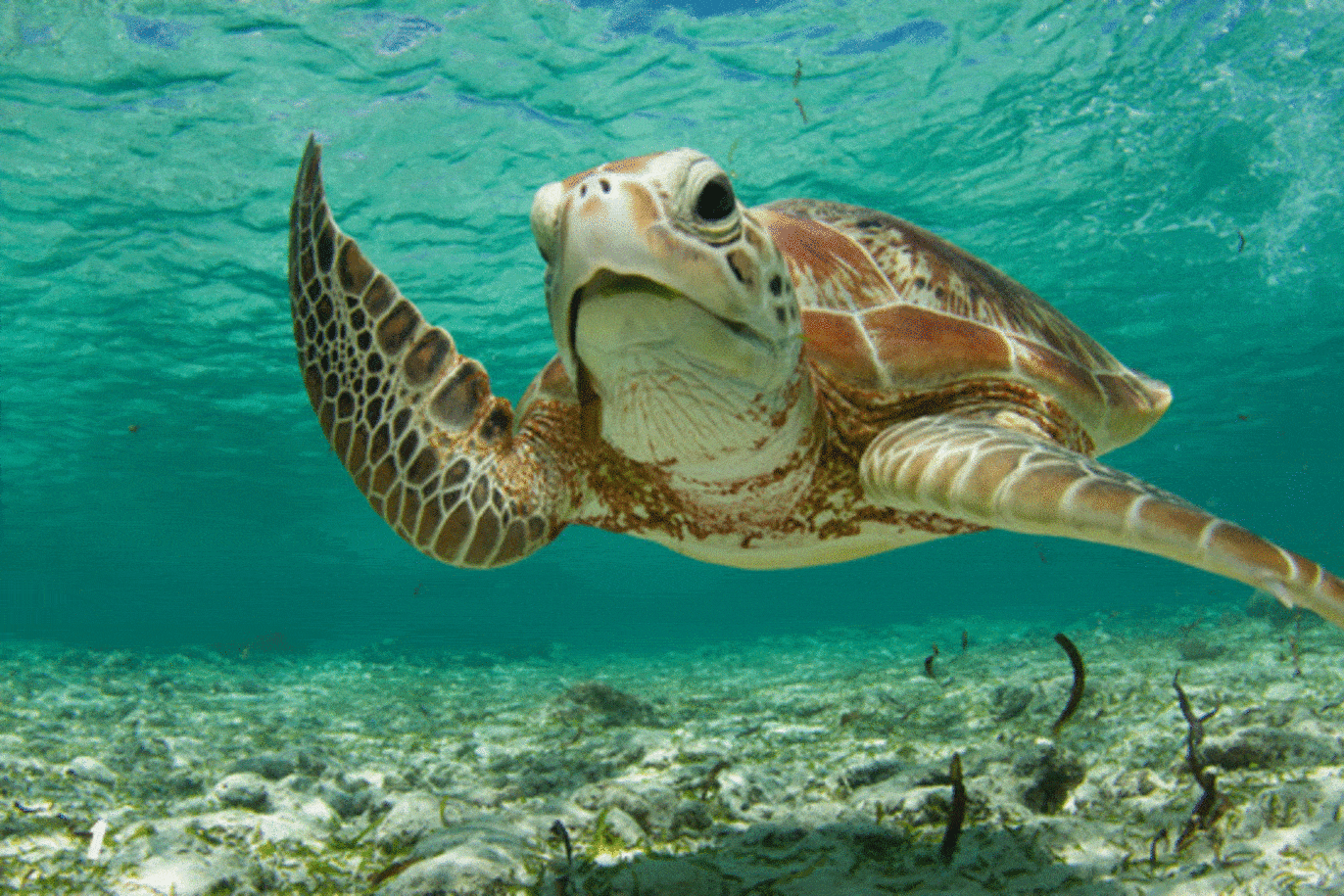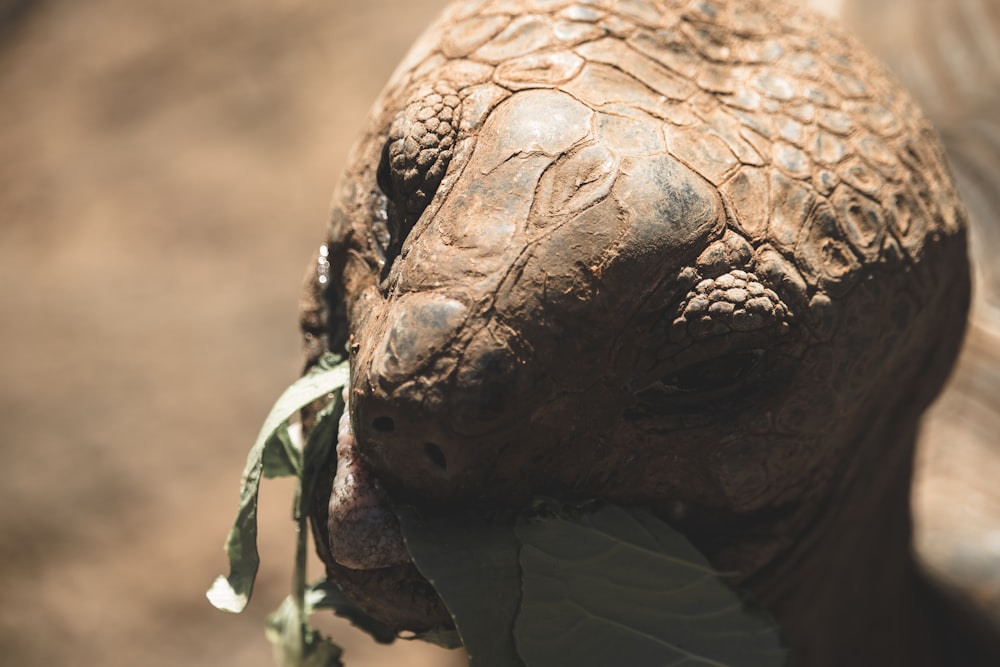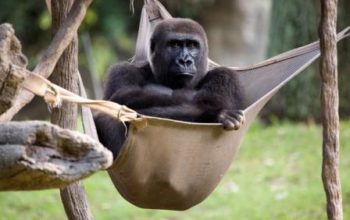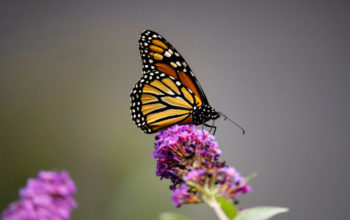Turning 190 this year, Jonathan the tortoise is the world’s oldest living giant tortoise, and may be the oldest confirmed living land animal
How will he celebrate being the oldest? Most likely by sunbathing, sleeping, eating, and mating, yes mating!
The following written content Elizabeth Gamillo
:focal(337x237:338x238)/https://tf-cmsv2-smithsonianmag-media.s3.amazonaws.com/filer_public/56/48/56483b6b-d66f-4d7d-84b5-9c50c13c6487/jonathan-feb-2019_tcm25-562217.jpg)
Jonathan, a Seychelles giant tortoise (Aldabrachelys gigantea hololissa), will celebrate his 190th birthday this year at his home on the South Atlantic Island of St. Helena, a volcanic British Overseas Territory.
According to the Guinness World Records, the event will make the reptile the oldest-ever living chelonian, the reptile order that includes turtles, terrapins and tortoises. Previously, the record was held by Tu’i Malila, a Madagascar radiated tortoise gifted to Tonga’s royal family in 1777 and died in 1965 at 188 years old.
Jonathan arrived in St. Helena as a gift to Sir William Grey-Wilson in 1882, who later became governor of the island. Since then, Jonathan has wandered and grazed the gardens of Plantation House, the governor’s residence, where he has seen 31 governors hold office, CNN’s Lianne Kolirin reports. Jonathan still resides there with three other giant tortoises: Emma, David, and Fred.
According to a letter from 1882 when Jonathon first moved to St. Helena from the Seychelles Archipelago, he arrived “fully grown,” which would mean he was at least 50 years old. Jonathan may have hatched in 1832, but the almost bicentenarian is likely older.
“To be honest, I suspect he’s older, but we can never know,” says Joe Hollins, a veterinarian who cares for Jonathan, to the Washington Post’s Cathy Free.
To put Jonathan’s age into perspective, when Queen Elizabeth II’s great-grandmother Queen Victoria ascended the throne in 1837, the tortoise was already five years old.
A photo taken between 1882 and 1886 shows a fully-grown Jonathan munching grass at Plantation House with a group of people, providing further evidence of his suspected age, reports Sanj Atwal for Guinness World Records.
Seychelles tortoises were found on various Indian Ocean archipelagos but went extinct because sailors used them for food on ships. Hollins, who has tended to Jonathan for 13 years, tells the Washington Post that ship crews harvested tortoises because they didn’t need food or water for days and were easily stacked.

“It was quite traditional for [tortoises] to be used as diplomatic gifts around the world if they weren’t eaten first. Apparently, they were utterly delicious.” Hollins tells the Post.
If he was in fact born in 1832, Jonathan has lived through many historical events. To name only a few:
“While wars, famines, plagues, kings and queens and even nations have come and gone, he has pottered on, totally oblivious to the passage of time,” Hollins tells the Post. “Jonathan is symbolic of persistence, endurance, and survival and has achieved iconic status on the island.” Read more from Smithsonian
Subscribe here
Why do turtles live so long? Fascinating reasons….
The following is f
Turtles-
According to Guinness World Records, Jonathan, a giant tortoise, was 187 years old in 2019- making him 80 years old when the Titanic sank.

The following written content by JoAnna Wendel

It’s all in their biology.
On the island of St. Helena in the South Atlantic, there lives a creature that Guinness World Records has dubbed the “world’s oldest animal on land.” His name is Jonathan, and he’s a giant tortoise. According to Guinness World Records, Jonathan was 187 years old in 2019. Born in 1832, during the reign of Queen Victoria, he was already 80 years old when the Titanic sank deep into the North Atlantic.
Jonathan and other giant tortoises aren’t the only turtles that live a long time, said Jordan Donini, a professor of biology and a turtle ecologist at Florida SouthWestern State College. Sea turtles can live 50 to 100 years, and box turtles can live more than a century, he told Live Science. In fact, scientists don’t know the upper limit on many turtle species’ life spans, simply because individual humans don’t live long enough themselves to find out.
So why do turtles live so long? There’s an evolutionary answer and a biological answer, said Lori Neuman-Lee, an assistant professor of physiology at Arkansas State University who studies turtles and other reptiles.
The evolutionary answer is relatively straightforward: Animals such as snakes and raccoons love to eat turtle eggs. To pass on their genes, turtles have to live a long time and breed frequently, sometimes multiple times per year — and lay a lot of eggs. “It is kind of amazing that the world is not overrun by turtles, given how many offspring they have,” Neuman-Lee told Live Science.
The biological mechanism behind turtles’ longevity is more complicated.
One clue to turtles’ longevity lies in their telomeres, structures composed of noncoding strands of DNA that cap the ends of chromosomes, Neuman-Lee said. These structures help protect the chromosomes as cells divide. Over time, telomeres get shorter or degrade, which means they can no longer protect their chromosomes as well, leading to issues with DNA replication. And errors in DNA replication can lead to issues such as tumors and cell death.
But turtles exhibit a lower rate of telomere shortening compared with shorter-lived animals, Neuman-Lee said. This means they’re more resistant to certain kinds of damage that can arise from DNA-replication errors.

Scientists haven’t confirmed all of the factors that contribute to turtles’ long lives, but they have proposed some ideas. In a paper posted July 8 to the preprint database bioRxiv that has not yet been peer-reviewed, a team of scientists explored a number of mechanisms and substances that lead to cell damage and death, and looked at how cells from several turtle species, including from a giant tortoise (like Jonathan), responded.
According to the paper, giant tortoises and a few other turtle species seem to be able to protect themselves from the long-term effects of cell damage. They do this by quickly killing off damaged cells, using a process called apoptosis, or programmed cell death, Neuman-Lee said. Read more from L.S.





